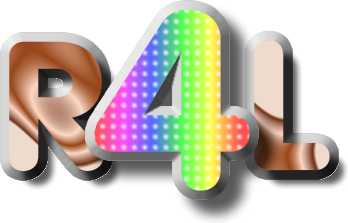reason for living
Believing “on Trust”
or, how likely are we to spot the undetectable lie?

When we believe something “on trust” we are believing it not because we have hard evidence of its accuracy, but because we consider the source of information to be reliable. Believing things “on trust” is something that each of us does daily — every time we believe something that we read in a newspaper or textbook and every time we believe what we hear on the radio news or weather forecast, we are believing “on trust”. This act of believing on trust is also known as an act of faith — we are putting our faith in whatever it is that we trust.
To believe something “on trust” is not a random experiment in acquiring knowledge. Every time we accept a statement “on trust” — even in the absence of explanation — then we should know why we do believe, and why we do not doubt.
In an ordinary conversation, say between two friends, we determine what to accept “on trust” according to our knowledge of the friend. If we know our friend particularly well, we will know of any areas of life where they have a vested interest and so are likely to understate, overstate or even wrongly state a point. Likewise we will also know which topics are likely to be exaggerated by our friend and the extent to which they will be exaggerated. We will probably have some idea of the friend's level of factual knowledge, intellectual understanding and practical experience of the subject being discussed and will therefore be able assess their credibility as well as being able to understand, even if only to a limited extent, the reasons why a statement is made or not made, emphasised or not emphasised. In addition to all of this knowledge of our friend, we will usually also have some knowledge of our own about the topic.
Even where the speaker is not personally known to us to any degree, we are still able to assess, to some extent, the validity of any claim made by the person. We can do so by reference to the person's overall apparent character, body language, what we observe about them and the situation in which we meet them.
In the case of a newspaper or radio programme we can determine what to accept on trust by reference to the reputation of the author and publisher or of the broadcaster and the radio company; we might take into account the need for the publisher or broadcaster to adhere to the national laws concerning misrepresentation and defamation. We will also consider our knowledge of the overall situation in which the information is presented. By this means we might decide to fully believe what is written on the gardening pages of a newspaper but decide to believe very little of what is written about a national war that is in progress; we know that the laws of censorship in the interests of national security apply to battle reports but that they do not apply to discussions in the gardening section about flowers and vegetables.
With the material provided in a seance, or from any medium or spiritist, we, as the listener, have none of the above aids to understanding and interpretation. Because the speaker is, so it is alleged, the “spirit” speaking through the medium or spiritist, we do not and cannot know the speaker personally, we know nothing of the speaker's background, his motives, his integrity, his vested interests, his intellect, his strengths or weaknesses, his understanding of the subject matter, his level of experience. Indeed we know nothing about the speaker; he is a stranger to us in the fullest sense. Because the speaker is not only invisible but is speaking through another person (the medium) we do not even have recourse to body language and other non-acoustic aids in our assessment of his speech. (See the note 1, at the bottom of the page)
In a seance situation it is quite impossible to know what we can believe “on trust”; we have no reference points:
- The speaker could be telling the truth, the whole truth and nothing but the truth and representing the truth fairly and without bias.
- Equally, however, the speaker could be telling lies, misrepresenting the facts, could be biased in all manner of ways, could be ignorant, could be telling a fictitious story or could simply be a complete idiot with no understanding whatsoever of the subject material.
We, the listener, have absolutely NO WAY of knowing which.
Why then, should we choose to believe any of it?
Note 1:
The limitations described in the whole of this paragraph do not apply
where someone claims to speak as a prophet because a prophet represents
God and not just any God but the God described in the Bible. It
is possible therefore for us to check what the prophet claims against
what the Bible claims. If the two contradict one another, then
the prophet is definitely NOT from God. If, however, the two agree
then the prophet MIGHT be from God. We are then duty bound to
check and consider further. The Bible itself can be authenticated
to a high degree by comparison with other records: written, archaeological
... and so we can trust it to a very high degree even before we
have religious faith.
Copyright © 1993, 1999